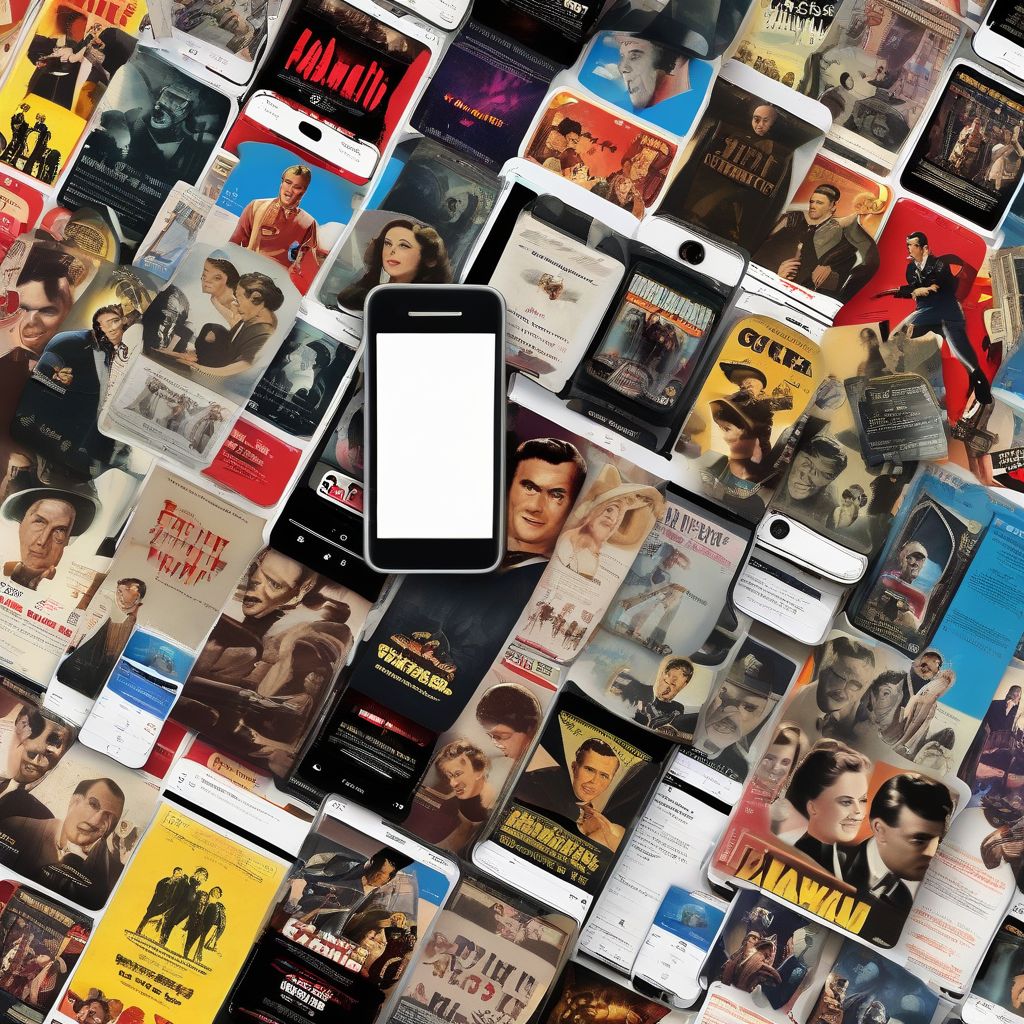Remember the days of flipping through newspapers or waiting for the evening news just to catch a glimpse of what the critics thought about the latest blockbuster? Today, film criticism thrives in a digital landscape that’s faster, more diverse, and arguably, far more influential than ever before. But how is this evolution shaping our relationship with classic films, those timeless masterpieces that seem to transcend generations? Let’s delve into the exciting future of classic movie reviews in the digital age.
The Shifting Sands of Film Criticism
The internet has democratized film criticism, giving voice to a chorus of perspectives that reach far beyond the traditional critic. Blogs, video essays, podcasts, and social media platforms have all become vibrant spaces for dissecting and discussing cinema, both new and old. This shift has opened up exciting possibilities for classic film reviews:
1. A Global Conversation
Geographic barriers have crumbled. Film enthusiasts from all corners of the world can now connect and share their passion for classic cinema. This global conversation brings fresh interpretations, challenging established narratives and shedding light on cultural nuances that might have been overlooked in the past.
2. Accessibility and Discovery
Remember scouring dusty video store shelves for a hidden gem? Online streaming platforms and digital archives have made a treasure trove of classic films readily accessible. Accompanying this wealth of content are user reviews and curated lists, helping cinephiles discover forgotten classics or delve deeper into beloved favorites.
3. Beyond the Written Word
Video essays, podcasts, and even TikTok reactions offer dynamic new ways to engage with classic films. These formats utilize visuals, sound, and editing to create compelling narratives that resonate with a digitally savvy audience, making classic cinema more approachable for younger generations.
 Classic Movie Reviews
Classic Movie Reviews
[amazon bestseller=”classic movie books”]
The Enduring Power of the Critic
While the internet has empowered everyone to be a critic, the role of the expert remains crucial, especially when it comes to classic films. Knowledgeable film critics provide:
1. Historical Context and Analysis
Placing a classic film within its historical, social, and artistic context is essential for understanding its significance. Experienced critics possess the knowledge to draw these connections, enriching our appreciation of the film’s nuances and impact.
2. Critical Distance and Objectivity
In a world saturated with opinions, a critic’s ability to maintain objectivity is invaluable. They can sift through the hype and nostalgia, offering a balanced perspective that goes beyond personal preference.
3. A Curated Lens
With such a vast library of classic films available, it can be overwhelming to know where to start. Critics act as curators, guiding us towards hidden gems and providing insights that enhance our viewing experience.
Challenges and Opportunities
The digital age presents both challenges and exciting opportunities for the future of classic film reviews:
1. Combating Short Attention Spans
In a world of instant gratification, capturing and holding the attention of audiences, especially younger generations, can be challenging. Critics need to find creative ways to engage readers and viewers, using concise language, compelling visuals, and interactive elements.
2. The Algorithm Effect
Search engine optimization and algorithmic recommendations can impact the visibility of film reviews. Ensuring that quality content reaches its intended audience requires navigating the complexities of the digital landscape.
3. Cultivating Critical Thinking
The abundance of information available online necessitates critical thinking skills. Encouraging readers and viewers to engage thoughtfully with different perspectives, evaluate sources, and form their own informed opinions is crucial.
A Bright Future for Classic Cinema
The digital age has ushered in an era of unprecedented access to and engagement with classic film. While the way we consume and discuss these timeless masterpieces continues to evolve, one thing remains certain: the power of storytelling transcends time and technology.
By embracing the opportunities offered by the digital landscape while upholding the values of critical analysis and thoughtful discourse, we can ensure that future generations continue to be captivated and inspired by the magic of classic cinema.
What are your thoughts on how we can best preserve the legacy of classic films in the digital age? Share your thoughts in the comments below!
